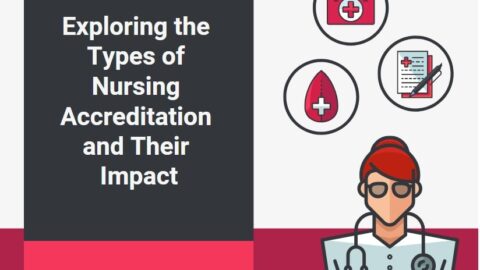Thriving in Nursing: Career Advice for Success and Fulfillment in the Healthcare Industry
Nursing is an incredibly rewarding career, but it is also a very demanding one, both physically and emotionally. As with most jobs that offer a high level of personal fulfillment there are usually costs associated with the work needing to be done. Long shifts, demanding patients, and tragedies are common occurrences in this field. But so are the positives. No matter what department or track chosen, a career in nursing is going to have its trials. A great way to avoid the challenges that accompany a tough career is to learn from those who have gone before. Here is a collection of suggestions for how to thrive in career path in nursing, some career advice for success and greater fulfillment while working in the healthcare industry.
Table of Contents
Self-Care: Identifying and Mitigating Burnout
Nursing is tough work: long hours, stressed out patients and staff, the anxieties related to keeping people alive— or watching them decline… These are just a few of the incredibly complex and demanding factors that accompany the role of being a nurse, but when combining those with the others— and trying to maintain a healthy personal life outside of work— the task can become daunting. Even dangerous.
Burnout has always been a normal factor in healthcare jobs such as career path in nursing. It just comes with the territory of saving lives. But the world’s recent experience with COVID-19 demonstrated just how demanding and stressful healthcare can be. Yes, the pandemic was a temporary force on the world. But it did much to heighten the daily stresses that daily life contains, exposing its power on human sanity.
Few professions had to deal with the worst of those pressures and stresses than healthcare workers. While the world has mostly gone back to normal, it left in its wake the shocking reality of how draining a role in health care can be. Learning to identify signals leading to personal burnout is vital to success as a nurse, not just for oneself. But for the patients and staff.
Understanding those signs, implementing self-care techniques. Or just knowing when to move on to something new can quite literally save lives.
Adaptability
People are taught to expect the best and be prepared for the worst. A day in the life of a healthcare professional in a nursing career demands adaptability. Change comes in many forms, it could be a new boss, the loss of a steady friend who moves departments, “improvements” to daily procedures. Or a sudden emergency situation. These types of things may be expected. But that rarely takes the sting out of their suddenness.
Learning to recognize how and when to respond when changes are unexpected means a steadiness and clear mindedness that helps to maintain an air of calm when things shift, for good or bad. That can be a short-term emergency. Or it can be the adoption of a long term, technological solution for patient care.
Regardless, understanding how to handle oneself when changes occur— because they will— is what can make a challenging day exciting instead of stressful.
Never Stop Learning
A career path in nursing is only limited by one’s own imagination and timing when looking for the right opportunity. A great way to create more opportunities for changing paths over the course of one’s career is to stay up to date on the constantly evolving field. This can be in a number of ways. But some more common and obvious from this list of choices is doing research online, by reading books, listening to podcasts (of which there are many), and signing up for email newsletters from the many different nursing organizations.
Some less obvious or more time consuming choices would be attending conferences. Or, signing up for classes in various certifications, going back to school for higher education. Or joining and regularly attending a nursing organization’s meetings. Doing so not only keeps the mind sharp and able to implement new techniques when the need arises. And the accumulated knowledge can transform into resume experience. And this primes a career path for a career change no matter the place or year.
Networking for career path in nursing
There is a good reason that the adage, “It’s all who you know”, has maintained a strong presence in the professional world. Because it works. A career in nursing is a career in health care, and the healthcare industry is huge. There are millions of people all over the country (let alone the world) who share common interests, experiences, and even struggles.
When combining this reality with the fact that, on any given day, a shift may require working with large or small teams of like minded individuals. And each of those people knows someone else in the field, the world opens up. Not only is this a great way to make friends, find support, and accomplish wonderful work. It is an effective way to learn different techniques.
As individuals, people tend to do things very routinely as part of their day. But just stepping out to listen or observe new people can unlock carefully refined methods that a more experienced nurse has honed over decades of service. Those tips— often hidden in plain sight— may require some humility and vulnerability in asking for help. But if well implemented may be exactly what leads to a promotion. And if that doesn’t work out, reaching out to a contact from the local nursing club can put someone on track for a career change.
What are the nursing career requirements?
Nursing career requirements typically include completing a nursing education program, obtaining a nursing license or registration, and meeting the specific requirements set by the nursing regulatory body in the relevant jurisdiction. Additional requirements may include passing exams, undergoing background checks, and fulfilling continuing education obligations to maintain licensure.
What are the best nursing careers?
The best nursing careers vary based on individual interests, skills, and goals. Some popular options include registered nurse (RN), nurse practitioner (NP), nurse anesthetist (CRNA), nurse midwife, and nurse educator. These careers offer opportunities for advanced practice, specialization, leadership roles, and higher salaries, depending on one’s preferences and aspirations.

Business Developmeny Manager at PAS InfoCom Technologies Ltd. Experienced in project management with a demonstrated history of working in the information technology and services industry.












